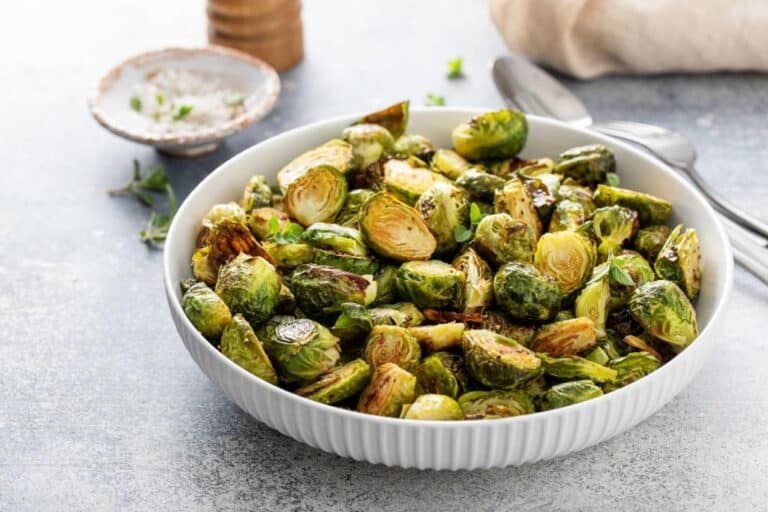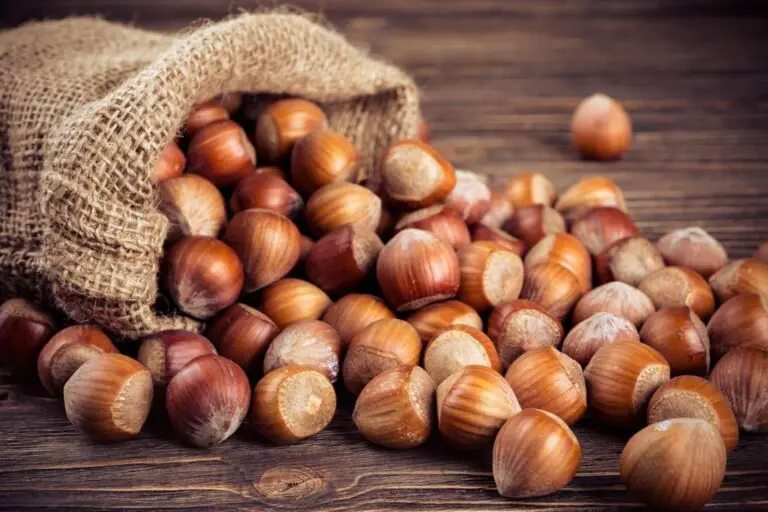Foods for a Deeper Voice Naturally: Eat Your Way to a Better Voice

Are you tired of having a weak, hoarse voice? Want to make a powerful impression with your deep, resonant tone? Look no further than your plate!
The foods you eat can play a significant role in the health and strength of your vocal cords. From protein-rich meats to antioxidant-packed fruits and vegetables, discover the top foods that can naturally enhance your voice and boost your confidence.
In this article, we will explain why you may need a deeper voice and provide you with the best foods for naturally deepening your voice. Find out which foods are essential for your vocal cords and how they can help improve your speech. With this guide, you can easily eat your way to a better voice!
Why People Want a Deeper Voice
A deep voice can be very helpful, not just for attracting people of the opposite gender, but also in the workplace and in sports. For one thing, studies have shown that people with deep voices tend to be more successful in leadership roles and are seen as more competent and trustworthy.
A deep voice can also be a real plus when it comes to public speaking, as it can command attention and project authority.
But it’s not just about sounding impressive; a deep voice can also be an indicator of good health and fitness. Researchers have found that a deep voice can be a sign of a bigger and stronger body, which can help a person do well in sports.
And let’s not forget that for some people, having a deeper voice is all about personal preference and self-expression. Some folks may feel that a deep voice is more in line with their own personal identity and may seek to deepen their voice through natural means, such as the foods outlined above.
Now, remember that a deep voice isn’t the be-all and end-all. It’s not the only criteria for judging a person’s character, personality, and competence. And before you try to change your voice, it’s always a good idea to check in with a doctor or speech therapist.
The Science of Voice: How Diet and Nutrition Affect the Voice
Voice science is a complicated field that includes genetics, anatomy, and physiology, among other things. But what you eat and how much you eat are very important to your overall health and the quality of your voice.
The vocal cords, also known as vocal folds, are made up of muscle and elastic tissue. These tissues need proper nourishment to function optimally. Nutrients such as protein, carbohydrates, and water are essential for maintaining the structure and function of the vocal cords.
Certain vitamins and minerals, such as vitamin C, vitamin D, and zinc, can help improve the health of the voice.
A diet that is low in nutrients can lead to a weak and hoarse voice. This is because the vocal cords need energy to vibrate and produce sound. Without enough energy, the vocal cords become fatigued and the voice becomes weaker.
A diet that is high in processed foods, sugar, and saturated fats can also negatively impact the voice. These foods can cause inflammation in the body, including the vocal cords, which can lead to a raspy or scratchy voice.
On the other hand, a diet that is rich in fruits, vegetables, whole grains, and lean protein can help to improve the health of the voice. These foods are high in vitamins, minerals, and antioxidants, which can help to reduce inflammation in the body and protect the vocal cords.
Moreover, foods that are high in water content, such as fruits and vegetables, can help to keep the vocal cords hydrated, which is essential for optimal vocal function.
Protein-rich Foods for a Deeper Voice
Protein is an important nutrient for keeping and building muscle, including the muscles in the vocal cords. Consuming a diet rich in protein can help improve the strength and tone of the voice. Some of the best protein-rich foods for a deeper voice include eggs, dairy, and lean meats such as chicken, turkey, and fish.
Eggs have a lot of protein and Vitamin D, which is important for keeping your vocal cords healthy. Eggs can help you build and keep muscle mass in your vocal cords, which can make your voice sound deeper and fuller.
Dairy products, such as milk and yogurt, are also high in protein and can help to improve the tone and strength of the voice. Dairy products are also a good way to get calcium, which is important for keeping your bones healthy, including the bones in your larynx.
Lean meats, such as chicken, turkey, and fish, are also high in protein and can help to build and maintain muscle mass in the vocal cords. These meats are also a good source of iron, which is needed for maintaining healthy blood flow to the vocal cords. Eating lean meat regularly can help to improve the tone and strength of the voice, leading to a deeper and more resonant voice.
In addition to these protein-rich foods, stay hydrated and avoid smoking, alcohol, and excessive caffeine intake, as these can dehydrate the vocal cords and cause strain on the voice.
Dairy and Calcium for a Deeper Voice
Milk, cheese, and yogurt are all good sources of calcium, which is essential for keeping your vocal cords healthy. Calcium is a mineral that is very important for the voice box, or larynx, to work well. It helps to keep the vocal cords strong and flexible, which can result in a deeper and more resonant voice.
When you eat dairy products, your body absorbs the calcium and sends it to your vocal cords, where it helps keep the tissues strong and in good shape. A diet that is rich in calcium can also help to prevent vocal cord damage caused by overuse or strain, which is common among singers and public speakers.
The recommended daily intake of calcium for adults is 1000 mg. A single serving of dairy products such as a cup of milk, a slice of cheese, or a cup of yogurt can provide up to 300 mg of calcium. You can make sure you get enough calcium for healthy vocal cords by eating a variety of foods that are high in calcium.
Take note that eating a lot of calcium is not enough to give you a deeper voice on its own. It’s important to maintain a healthy lifestyle, which includes regular exercise and enough hydration, as well as avoiding habits that can damage the vocal cords, such as smoking. And, as always, consult with a doctor or a speech therapist before trying to change your voice.
Fruits and Vegetables for a Deeper Voice
Fruits and vegetables should be part of a healthy diet, and they can also help you get a deeper voice naturally. Leafy greens, such as spinach and kale, are rich in antioxidants and anti-inflammatory compounds, which can help reduce inflammation in the vocal cords. Berries, such as blueberries and raspberries, are also high in antioxidants and can help to protect the vocal cords from damage.
Apples, which are high in Vitamin C and can help boost the immune system, and carrots, which are high in beta-carotene and can help improve the health of the mucous membranes that cover the vocal cords, may also be good for the voice.
Fruits and vegetables that are high in water content can help to keep the vocal cords hydrated, which is important for maintaining their elasticity and function.
Foods To Avoid for a Deeper Voice
If you want a deeper voice naturally, you should stay away from certain foods and substances. Caffeine and alcohol are two of the biggest culprits. Caffeine can dry out the vocal cords and make them more likely to get hurt, which can hurt the quality of your voice.
In the same way, drinking alcohol can dry out the vocal cords, making it harder to make a deep, resonant sound. Also, alcohol can make the muscles in the throat tight, which can stop the vocal cords from working right.
Processed foods are also a big no-no when it comes to maintaining vocal cord health. Processed foods often have a lot of sodium and other unhealthy ingredients that can make you thirsty and hurt your vocal cords. Also, processed foods can make you gain weight, which can put more strain on your vocal cords and make your voice sound worse.
To keep your vocal cords healthy and get a deeper voice, you should avoid these foods and substances and focus on a diet full of nutrient-dense foods that support vocal cord health, like dairy products like milk, cheese, and yogurt, which are all great sources of calcium, which is important for keeping vocal cords healthy.
Hydration and a Deeper Voice

Staying hydrated is crucial for keeping your vocal cords healthy and making your voice sound better. The vocal cords are made up of two thin, flexible bands of muscle tissue that vibrate to produce sound.
For these cords to work well, they need to be lubricated, and they need to drink enough water to keep them hydrated. When the vocal cords are dehydrated, they become dry and less flexible, which can lead to a raspy or hoarse voice.
When the body isn’t getting enough water, it makes less saliva, which is needed to keep the vocal cords moist.
Getting enough water also helps get rid of any waste or toxins that have built up in the body. These impurities can cause inflammation in the vocal cords, which can lead to a loss of vocal range and power. Drinking enough water can help reduce this inflammation and improve the overall health of the vocal cords.
In order to achieve optimal hydration for a deeper voice, drink at least 8 glasses of water per day. However, take note that some individuals may require more or less depending on their activity levels, body size, and the climate they live in. Drinking water throughout the day and avoiding dehydrating beverages like alcohol and caffeine will help to keep the vocal cords hydrated and improve the quality of the voice.
Supplements for a Deeper Voice
Supplements for a deeper voice can include a variety of vitamins and minerals that can help boost vocal cord health and improve voice quality. Vitamin C, vitamin D, vitamin E, and zinc are some of the most important supplements to think about.
Vitamin C is a key ingredient of making collagen, which is important for keeping the vocal cords healthy. Vitamin D is also important for keeping the vocal cords healthy, and it helps the body absorb calcium, which is important for the health of the vocal cords. Vitamin E is a powerful antioxidant that can help protect the vocal cords from damage caused by free radicals.
Zinc is needed to make hormones, enzymes, and other molecules that are important for keeping your vocal cords healthy.
Some people may also want to take beta-carotene, magnesium, and omega-3 fatty acids as supplements. Beta-carotene is an antioxidant that can help protect the vocal cords from damage. The vocal cords need magnesium to stay healthy, and magnesium helps the body absorb calcium, which is also important for vocal cord health. Omega-3 fatty acids are important for keeping the vocal cords healthy and can help reduce inflammation in the body.
WARNING
Before starting any supplement plan, you should talk to a doctor or other qualified healthcare professional to make sure that the supplements are safe and right for you. Some supplements may interact with certain medications and may not be suitable for people with certain medical conditions.
Lifestyle Changes for a Deeper Voice
Changes to your lifestyle can help you improve your voice quality and get a deeper voice. Some exercises that can help include vocal warm-ups, such as humming or lip trills, which can help strengthen the muscles used for speaking and singing. Additionally, practicing proper breathing techniques can help to improve voice projection and control. These techniques include breathing from the diaphragm, which can help provide more support for the voice.
Changes to your lifestyle that can help you get a deeper voice include giving up things like smoking, drinking too much alcohol, and yelling. These habits can make the vocal cords inflamed and irritated, which can hurt the quality of the voice.
Additionally, pay attention to posture and body alignment, as they can affect breath support and voice projection. A good posture can help open up the airway and give the voice more room to resonate.







